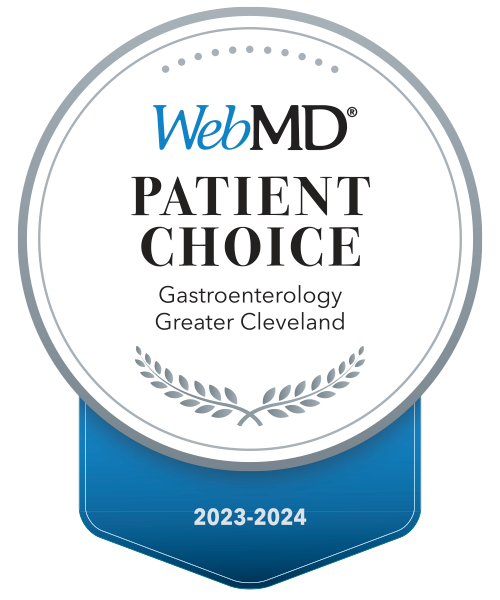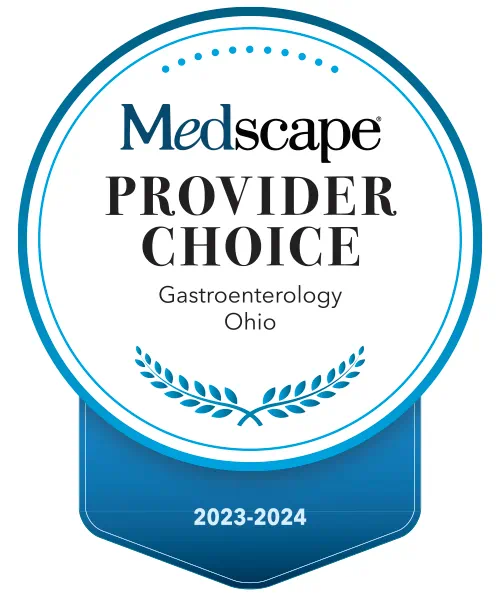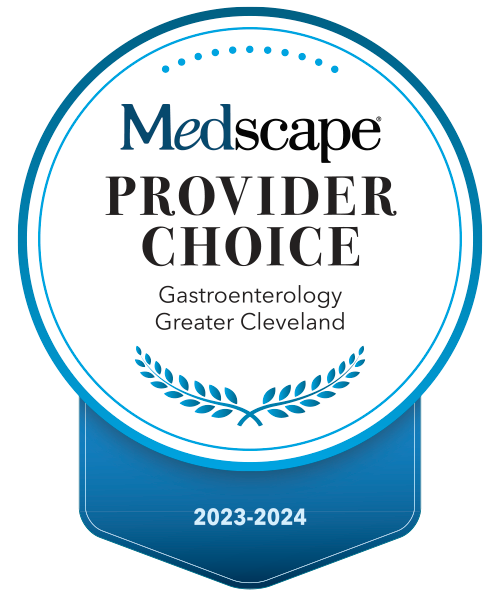
Surgical Weight Loss Options
Bariatric surgery procedures are an option for patients who have not had long-term success with diets and other non-surgical weight loss approaches. The bariatric surgery team at University Hospitals uses the latest surgical advancements to help patients experience safe and successful weight loss, in order to enjoy a healthier, more active lifestyle.
We offer individualized support for patients, including lifetime nutrition counseling before and after weight loss surgery. Many of our team members have had weight loss surgery themselves so they understand the journey and know how to help patients achieve long-term success.
Am I a Candidate for Bariatric Surgery?
In general, eligibility for any given weight loss program will be determined by your body mass index (BMI), how much weight you want to lose, and whether you prefer a non-surgical or surgical option.
To qualify for bariatric weight loss surgery, patients must meet one of the following criteria:
- BMI of 40 or higher (about 100 pounds overweight)
- BMI of 35-39.9 and at least one weight-related medical condition such as diabetes, high blood pressure or sleep apnea.
People with a BMI over 75 may not qualify for weight loss surgery immediately because of a higher risk of complications. Our team may recommend approaching your weight loss goals with a phased approach.
Nationally Recognized Care at Four Convenient Locations

University Hospitals is an ACS Surgical Quality Partner by participating in the Metabolic and Bariatric Surgery Accreditation & Quality Improvement Program. This demonstrates that University Hospitals adheres to the most rigorous standards in surgical quality and that we are committing to maintaining, evaluating, and improving our surgical quality standards for patients.
Accredited surgical weight loss care is available at four convenient locations, including:
Types of Weight Loss Surgery
We offer several types of surgical weight loss procedures, including minimally invasive, non-invasive and endoscopic options. Treatment options may include:
Endoscopic Weight Loss Procedures
To bridge the gap between non-surgical and surgical weight loss options, University Hospitals offers several endoscopic procedures that can help patients lose up to 20 percent of their body weight. To qualify for endoscopic weight loss procedures, patients must have a BMI greater than 30.
Endoscopic procedures are performed using an endoscope – a flexible tube with a camera and light attached – that’s inserted into the mouth and doesn’t typically require any incisions. Endoscopic weight loss procedures offer faster recovery times, less pain and fewer complications than traditional surgical methods.
Endoscopic options may include:
- Endoscopic Sleeve Gastroplasty (ESG)
-
The newest endoscopic option for weight loss, ESG is a minimally invasive procedure that changes the shape of the stomach to a tube or sleeve and reduces its capacity by about 70-80 percent.
The procedure is done under general anesthesia and patients typically go home the same day and can to return to their regular activities after 2-3 days. ESG may be a good option for those who are ineligible for or choose not to undergo traditional weight loss surgery.
This procedure may not be covered by insurance providers. Please inquire about self-pay or finance options available.
- Intragastric Balloon
-
One of our most successful non-invasive endoscopic options for weight loss is a gastric balloon. This procedure places an inflatable balloon in the stomach through an endoscope, without incisions or scars. This gastric balloon is then filled with a water solution so patients feel full sooner and eat less.
The balloon is left in the stomach for six months. During this time, patients participate in a personalized diet and exercise program to encourage portion control and a healthy lifestyle. Typically, patients lose 30 to 50 pounds.
This procedure is not covered by insurance yet. Please inquire about self-pay or finance options available.
- Endoscopic Repair of Digestive Complications
-
With skilled use of endoscopic procedures, our team can repair any digestive problems that may arise in your weight loss journey. These include fistulas, perforations, and gastroesophageal reflux disease (GERD). We use cutting-edge techniques that are only available at our specialized centers.
These procedures may not be covered by insurance providers. Please inquire about self-pay or finance options available.
Bariatric Surgery Options
Patients who are eligible for traditional weight loss surgery may undergo one of the following procedures based on their medical history and personal preferences:
- Gastric Bypass
-

Also known as Roux-en-Y gastric bypass weight loss surgery, this procedure reduces the size of your upper stomach to a small pouch to reduce the amount of food you can eat which leads to weight loss. The intestines are also rerouted to decrease the absorption of calories and change the metabolism of insulin. Gastric bypass surgery can help you lose 50 – 75 percent of your excess weight on average.
Gastric bypass has been around longer than any other surgical weight loss procedure available today and remains one of the most commonly performed bariatric surgery procedures worldwide. The gastric bypass is commonly considered for patients that have diabetes or severe heartburn. The gastric bypass is one of the most effective anti-reflux operations that are available today, and reflux is resolved in 75 percent of patients that choose this surgery.
Please enquire about self-pay or finance options available.
- Sleeve Gastrectomy
-

With the minimally invasive sleeve gastrectomy procedure, our surgeon removes 80 to 90 percent of your stomach, making more of a tube shape, similar to a medium sized banana. With a smaller stomach, you will feel fuller faster. Bariatric sleeve surgery removes the portion of your stomach where hunger hormones are generated, which also results in a decreased appetite and improvement in hunger. You may lose 50 – 60 percent of your excess weight on average with a gastric sleeve procedure, along with seeing improvements in your overall health.
Please enquire about self-pay or finance options available.
- Robotic Bariatric Surgery
-
In addition to our other minimally invasive bariatric procedures, UH also offers weight loss surgery using robotic surgery technology. The bariatric surgeons at UH are able to perform Roux-en-Y gastric bypass and sleeve gastrectomy procedures using the da Vinci robotic surgery system. This surgical technology uses an advanced set of tools that the surgeon is able to expertly manipulate with superior precision and range of motion. Because robotic surgery only requires a few small incisions through which to insert the instruments, it can mean less blood loss, lower risk of complications or infection and reduced pain for patients. Other advantages of robotic bariatric surgery may include shorter hospital stays, faster recovery and improved outcomes.
Please enquire about self-pay or finance options available.
- Revisional Surgery of Previous Weight Loss Operations
-
If previous weight loss surgery has not been successful for you, or if you have experienced problems with your prior surgery, our team can provide a thorough health assessment and viable recommendations.
With appropriate tests and evaluation, we can help determine if you are experiencing difficulties related to your first weight-loss procedure and we can make suggestions for a revisional procedure if it is appropriate. Some problems can include weight regain from fistula formation, severe heartburn/reflux that isn’t controlled by medications, persistent ulcer formation, abdominal pain, inability to eat, diarrhea or constipation.
Please enquire about self-pay or finance options available.
- Duodenal Switch
-
This biliopancreatic diversion with duodenal switch (BPD/DS) is a more complex bariatric surgery technique that combines the steps of the sleeve gastrectomy with the decreased absorption of calories aspect similar to the gastric bypass. A duodenal switch (DS) is known to produce the largest weight loss of more than 150 pounds, as well as the greatest benefits for control of diabetes, but also carries the highest risk of malnutrition. Your surgeon can help determine if this is right for you.
Please enquire about self-pay or finance options available.
Our weight loss surgery patients are typically up walking and able to start sipping on water three hours after surgery. Most are ready to go home after one or two nights, depending on the type of surgery.

Group Sessions
Medically supervised weight loss, support groups, classes and more.

Success Stories
Losing weight can have a tremendous impact on a person’s health and life.

Patient Resources
Financing options, pre- and post-surgery diets, frequently asked questions and more.




University Hospitals has been recognized with 2023-2024 WebMD Choice Awards for excellence in Gastric Bypass and Gastroenterology. The award is the only health system recognition program based solely on the preferences of patients and providers at the local and state level.



